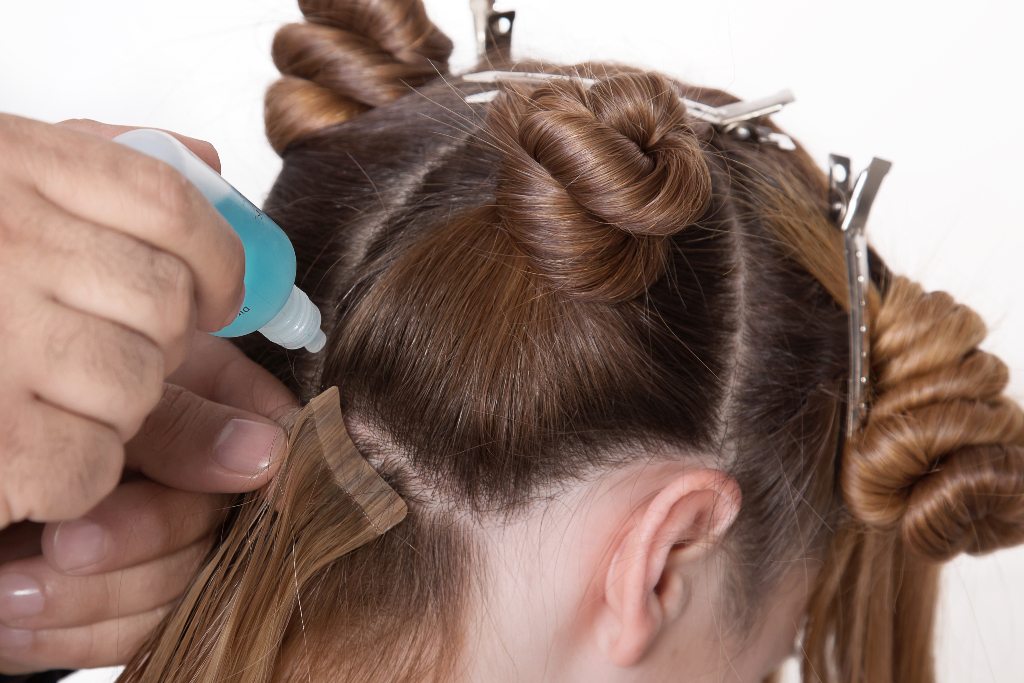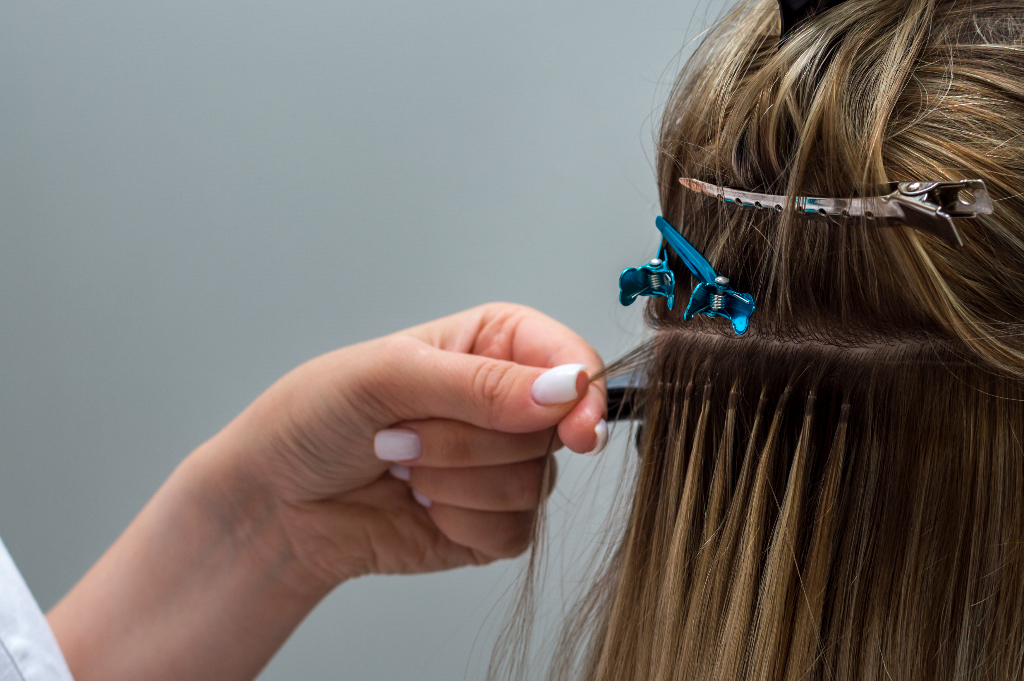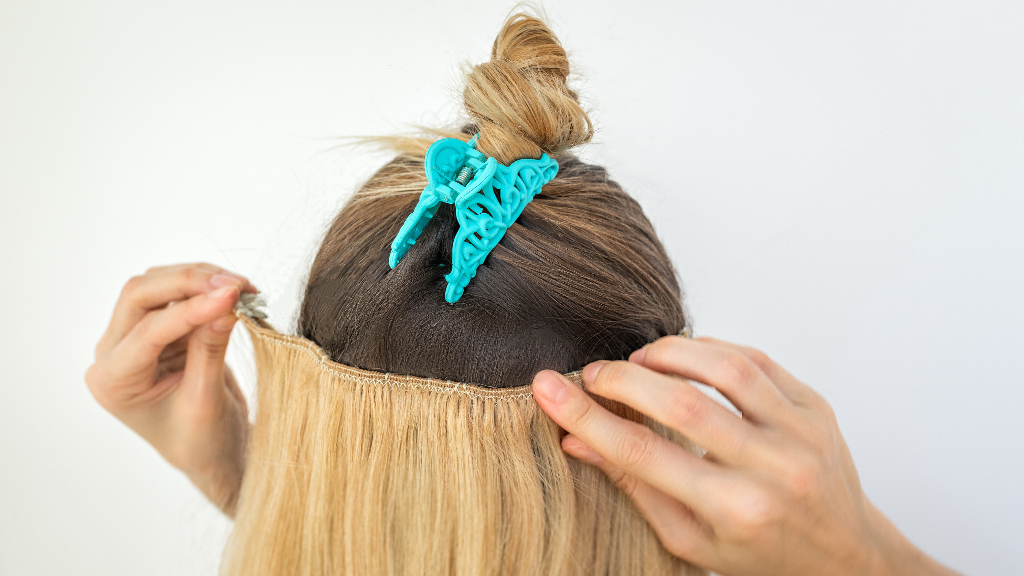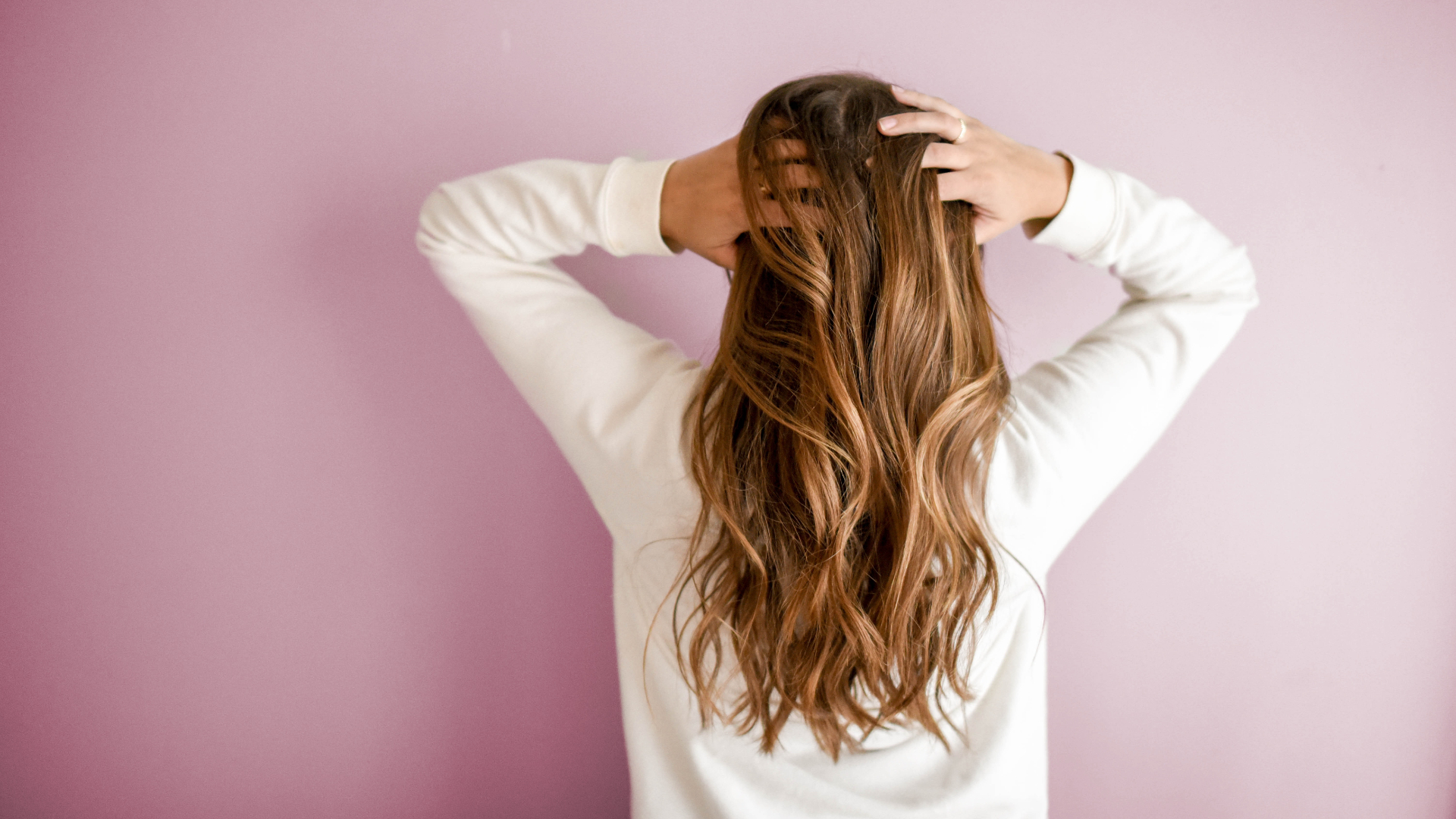If you have been experiencing hair loss, balding, or you simply have short hair that you’d like to be longer, you may have considered getting hair extensions. Getting hair extensions is certainly a great way to cover up any hair loss, balding, or short hair, and it can give you the confidence that you lack. Using bonding glue is one way to attach hair extensions to natural hair, but you may have heard that bonding glue can damage your hair. Does hair glue damage hair? Here is all you need to know about hair glue and extensions.
Hair bonding glue: Why it is used?

Bonding glue is used when attaching hair extensions because it’s effective at adhering the fake hair to natural hair in order to promote a natural look. Many women wear hair extensions long-term, so they need a glue that is going to withstand everyday situations, washing, and more. Nothing would be more embarrassing than being in the middle of a meeting at work and having a large piece of your “hair” fall out. That would be similar to a man’s toupee flying off in public. Bonding glue sticks so securely that it prevents any such mishap from occurring if used properly.
What you should know about bonding glue?
There are many potential problems that can occur from using hair bonding glue, so you should practice safety protocols when using it. Most hair glue contains various chemicals, and it’s these chemicals that can sometimes cause side effects. First of all, bonding glue has the potential to permanently damage your hair, as the glue prevents air from circulating to the scalp, which leads to dry and brittle hair. Bonding glue can also cause irreversible damage to the hair follicles for the same reason. This can stunt any future hair growth and even lead to hair thinning and bald spots.
For those who are allergic to latex, refraining from using hair glue is recommended, because most of them contain latex. Many hair glue users have experienced intense scalp irritation and allergies due to an unknown latex allergy. Many people wrongly believe that since the hair extensions are bonded to the hair instead of the scalp, it doesn’t matter if a latex allergy exists or not. However, fumes from the latex ingredients can permeate the scalp, leading to allergic reactions.
Can you use crazy or Gorilla Glue for hair extensions?
You definitely want to refrain from using any other type of glue that isn’t specifically made for hair. Crazy and Gorilla type glues are not made for use on the body and can lead to a host of undesirable side-effects. If you don’t like the idea of using hair glue to attach your extensions, then you should look into alternate ways that are safe. Using glue that isn’t made for use on the hair could lead to permanent damage to the hair follicles, hair loss, burning, irritation, redness, allergic reactions, and much more.
A natural bonding glue?
Whether you’re allergic to latex or you simply want to avoid any possible side-effects that you could potentially experience from regular bonding glue, there are some viable alternatives. You should be aware that there are healthier versions of bonding hair glue that are devoid of harmful chemicals and latex. These healthier versions of hair glue are certainly worth looking into if you’re determined to try hair extensions. You can check your local beauty supply, but if you can’t find any, you may be forced to shop online.
Consider a sew-in

Another alternative to bonding glue is a needle and thread. This may sound scary, but don’t worry, because you’re not going to be sewing through your skin. “Sew-ins” are attached to natural hair by braiding the natural hair and then using a needle-like object and threading it in order to attach the hair extensions. While some people don’t like the idea of having their natural hair braided underneath the extensions because they feel the braids can be too tight and painful, others actually prefer sew-ins because they don’t have to contend with the messiness or potential side-effects of glue.
Clip-in hair extensions

Yet another alternative to bonding hair glue is using clips in order to attach your hair extensions to your natural hair. These clips are very small and can be easily hidden in the hair. Many women who have experienced side-effects from bonding glue and intense pain from sew-ins state that clip-ins are a great alternative to these other methods.
Which method is best?
If you’re serious about getting extensions, then you must weigh the pros and cons of each method of attaching the fake hair, so you can choose the hair attachment method that works best for you. You certainly don’t want to choose the wrong method and then discover once the hair has already been attached that it’s not the right option for you for whatever reason. You can even ask a professional stylist’s recommendations for your particular situation, and hopefully the stylist will provide you with an honest and professional recommendation.
Conclusion
Women (and some men) have been using bonding hair glue for years without serious consequences. As long as you use the appropriate amount of glue during application and ensure that you’re completely washing the glue out once the extensions are removed, you shouldn’t experience any serious side effects. However, if you’re adamant about not using bonding hair glue, then you could also use a needle and thread to sew in your hair extensions. It’s a popular and effective alternative unless you opt for clipping the extensions in.

